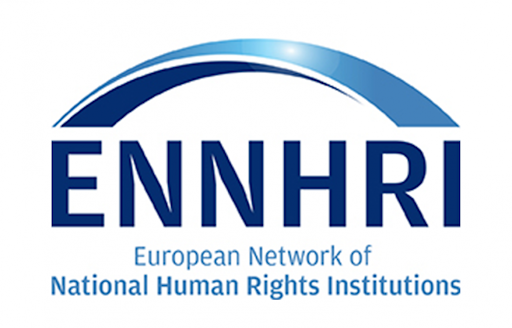
ENNHRI publishes a Report on the Rule of Law for candidate and potential candidate countries for accession in the European Union
Prishtinë, 6 May 2021 – The Ombudsperson Institution has been a member of the European Network of National Human Rights Institutions (ENNHRI) since 2013. This European Network has published a Report on the Rule of Law in Western Balkans and Turkey, which has been submitted the European Commission with the aim to provide information with regard to developments on the rule of law situation in candidate and potential candidate countries over the past year, based on the reporting of ENNHRI members in Albania, Bosnia and Herzegovina, Kosovo, Montenegro, North Macedonia, Serbia and Turkey.
This Report reflects a number of challenges which continue to affect progress towards the EU accession ‘fundamentals’ – such as rule of law, fundamental rights and the functioning of democratic institutions – in enlargement countries, as well as against the background of the emergency situation created by the COVID-19 pandemic. These challenges include the need to strengthen and support, within the national checks and balances systems, National Human Rights Institutions (NHRIs), as is the Ombudsperson Institution in Kosovo. Other common challenges relate to transparency, accountability and openness of public administrations, the functioning of justice systems, obstacles to the work of civil society organizations and human rights defenders as well as threats to media freedom.
Report’s findings point to the importance of stepping up efforts to strengthen the framework for the respect of the rule of law, fundamental rights and democracy in candidate and potential candidate countries within the accession process, as acknowledged in the European Commission’s 2020 Enlargement Strategy for the Western Balkans. In this context, the establishment and strengthening of NHRIs is of particular importance, since they can contribute to a regular and comprehensive monitoring and follow-up of developments related to the rule of law in the enlargement region.
As independent and state- mandated bodies with a broad human rights mandate, NHRIs can play a key role in driving concrete progress to advance rule of law, human rights and democracy on the ground, and thus contribute to the effectiveness of the EU accession process. Therefore, this report contains a number of concrete and targeted recommendations addressed to the EU, including as regards:
Giving more concrete consideration to the independence and effectiveness of NHRIs in enlargement countries, and government’s responsiveness to their recommendations, as a standalone indicator to measure progress on the EU accession fundamentals and those to be considered within accession negotiations;
Enabling NHRIs in bridging key EU objectives within the accession process with national realities, including through additional support for NHRIs’ regular submissions to the annual enlargement package through ENNHRI, enhanced participation of NHRIs in key policy forums and effective support to NHRIs under threat.
Supporting NHRIs in bridging national realities with the EU accession fundamentals, including by supporting follow-up by state authorities of NHRIs’ recommendations and reinforcing the need for national actors to respect NHRIs’ mandate, and facilitating mutual engagement;
Strengthening complementarities across policy initiatives and enhancing cooperation with other regional actors to address common concerns on the respect for rule of law, human rights and democracy in candidate and potential candidate countries, in particular through supporting, including through ENNHRI, implementation of Council of Europe Committee of Ministers Recommendations on NHRI.
In June 2021, ENNHRI will publish a more comprehensive Rule of Law Report which will include all members of this network across Europe.
The full report can be found at the following link: http://ennhri.org/wp-content/uploads/2021/05/RoL-Report-Enlargment-Countries-2021.pdf
Source: ENNHRI

